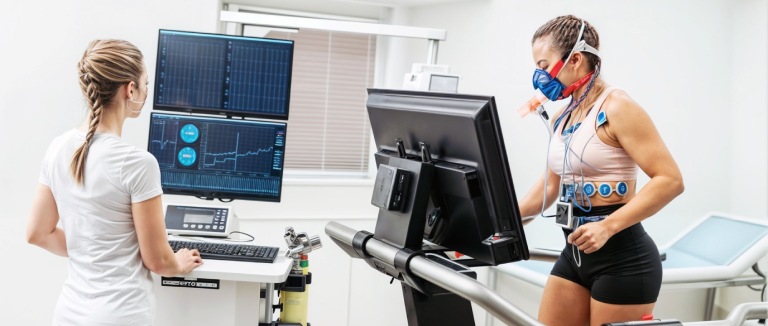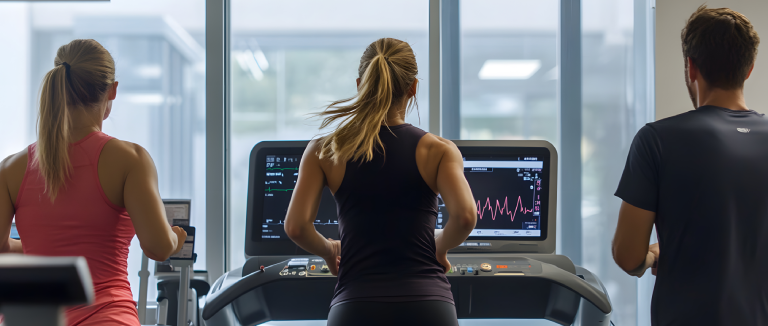Understanding Sports Cardiology
Sports cardiology is a specialized field of medicine that focuses on the heart health of individuals who engage in regular athletic activity. It combines cardiovascular expertise with sports medicine to evaluate, diagnose, and manage heart conditions in athletes of all levels. Whether someone is a professional competitor, a weekend marathon runner, or a fitness enthusiast, understanding how the heart responds to exercise is vital for maintaining long-term health and optimal performance. This is where Sports Cardiology for Athletes plays a crucial role, ensuring that every individual can train, perform, and recover safely under expert medical supervision.
At Liv Hospital, Sports Cardiology for Athletes forms an essential part of comprehensive athlete care. The hospital’s cardiology experts use advanced diagnostic tools and personalized evaluations to detect potential heart risks, assess endurance capacity, and monitor cardiovascular performance. Through a focus on prevention, early diagnosis, and tailored treatment, Liv Hospital helps athletes build sustainable performance and achieve peak results without compromising their heart health. This integrated approach reflects the hospital’s commitment to excellence in sports medicine and long-term wellness for athletes of every level.

Sports Cardiology for Athletes: The Role of the Heart in Athletic Performance
The heart is at the center of all physical performance. It delivers oxygen and nutrients to muscles, removes metabolic waste, and maintains endurance during intense training. In athletes, the heart undergoes natural adaptations such as increased chamber size, thicker heart walls, and slower resting heart rate. These changes are known as the “athlete’s heart” and are typically healthy signs of efficient cardiovascular function.
However, distinguishing normal adaptation from underlying disease requires expert evaluation. Sports cardiology at Liv Hospital involves detailed examinations that differentiate physiological changes from potential cardiac abnormalities. This ensures that athletes receive accurate diagnoses and appropriate recommendations for training intensity and recovery.
Why Sports Cardiology Matters for Athletes
Athletes often push their bodies to the limit, which can sometimes reveal hidden cardiovascular issues. Even those who appear healthy can carry genetic or acquired heart risks that remain undetected without proper screening. Sports cardiology focuses on identifying these silent risks before they lead to complications.
Liv Hospital’s cardiologists emphasize preventive evaluation, especially for athletes who experience symptoms like chest discomfort, shortness of breath, or irregular heartbeats. Routine cardiovascular screening helps prevent sudden cardiac events and enhances performance through personalized exercise recommendations.
Sports Cardiology for Athletes: Common Cardiac Conditions in Athletes
While most athletes have healthy hearts, certain conditions may develop or become more apparent with strenuous activity. These include:
1. Hypertrophic Cardiomyopathy (HCM)
A genetic condition where the heart muscle becomes abnormally thick, potentially leading to irregular rhythms or obstruction of blood flow.
2. Arrhythmias
Abnormal heart rhythms can occur due to excessive training or electrolyte imbalances.
3. Coronary Artery Disease (CAD)
Although rare in young athletes, this can affect older individuals engaging in high-intensity sports without proper medical assessment.
4. Myocarditis
Inflammation of the heart muscle, often following viral infections, can pose serious risks during physical exertion.
Liv Hospital’s advanced imaging and diagnostic testing allow early detection and management of these conditions, ensuring athlete safety at every level of training.
Screening and Diagnosis in Sports Cardiology
A thorough cardiac screening is the foundation of sports cardiology. The process often includes:
- Electrocardiogram (ECG) to assess electrical activity of the heart
- Echocardiogram to evaluate heart structure and function
- Exercise stress tests to monitor heart response under exertion
- Cardiac MRI or CT for detailed imaging
- Blood tests and risk factor evaluation
Liv Hospital uses state-of-the-art technology for cardiovascular screening. The results are analyzed by multidisciplinary teams that include cardiologists, sports medicine physicians, and physiologists. The aim is to ensure safe training thresholds and early identification of any cardiac risks.
Sports Cardiology for Athletes: Training Safely with Heart Awareness
Understanding personal heart health helps athletes train efficiently without overstraining the body. Sports cardiology offers customized training programs that balance endurance and intensity while protecting the cardiovascular system.
At Liv Hospital, cardiologists collaborate with trainers and nutritionists to tailor exercise regimens suited to the athlete’s age, fitness level, and cardiac condition. This personalized care ensures that training plans align with medical findings and optimize both safety and performance.
Sports Cardiology for Athletes: Nutrition and Heart Health in Athletes
Heart health and nutrition go hand in hand. Athletes require a diet rich in antioxidants, lean proteins, omega-3 fatty acids, and complex carbohydrates. These nutrients support energy metabolism, prevent inflammation, and strengthen cardiovascular function.
Liv Hospital’s nutrition specialists design diet plans specifically for athletes who undergo sports cardiology evaluations. The goal is to provide balanced meals that sustain performance while protecting heart health. Proper hydration and electrolyte balance are also crucial in preventing cardiac stress during prolonged training or competition.

Sports Cardiology for Athletes: Recovery and Rest for Cardiac Wellness
Rest and recovery are as important as training. Overtraining without sufficient recovery time can lead to increased heart strain, elevated blood pressure, and irregular rhythms. Sports cardiology emphasizes recovery management to maintain cardiovascular balance.
Liv Hospital’s rehabilitation programs include cardiac recovery protocols designed to restore heart rhythm stability after intense physical exertion. These programs integrate relaxation techniques, breathing exercises, and gradual reintroduction of training to maintain healthy heart performance.
Sports Cardiology for Athletes: Women Athletes and Cardiac Health
Women athletes face unique cardiovascular challenges due to hormonal differences and variations in heart structure. Conditions like arrhythmia or exercise-induced fatigue may manifest differently in women compared to men. Sports cardiology at Liv Hospital includes specialized evaluations for female athletes, ensuring personalized and gender-specific cardiac care.
The hospital’s experts also consider factors such as menstrual cycle, hormonal changes, and nutritional needs to develop safe and effective performance strategies for women in sports.
Sports Cardiology for Athletes: Cardiac Emergencies in Sports
Although rare, cardiac emergencies can occur during training or competition. Quick recognition and response can save lives. Sports cardiology promotes awareness and preparedness through regular medical assessments and emergency planning.
Liv Hospital offers advanced cardiac emergency services equipped with modern defibrillation systems and 24-hour cardiology support. The hospital’s sports cardiology team trains staff, coaches, and athletes in emergency response to ensure the safest environment for competitive sports.
Sports Cardiology for Athletes: Integrating Science and Performance
Sports cardiology has advanced dramatically with new technologies that give real-time insight into heart function. Techniques such as cardiopulmonary exercise testing (CPET) measure oxygen uptake and cardiac output during maximal effort, revealing how efficiently an athlete’s heart supports physical activity. These tests guide tailored training programs that enhance endurance without straining the cardiovascular system.
Liv Hospital’s specialists combine these diagnostic innovations with sports science principles to create personalized care plans. For example, marathon runners benefit from threshold analysis to balance stamina and heart rate, while cyclists and swimmers undergo cardiac performance mapping to optimize oxygen distribution during sustained effort. This collaboration between sports cardiology, physiology, and rehabilitation creates a complete picture of athlete health that goes far beyond standard medical testing.
Sports Cardiology for Athletes: The Future of Sports Cardiology
The field of sports cardiology continues to evolve with the integration of artificial intelligence, wearable monitoring devices, and personalized risk assessment tools. Continuous tracking of heart rate variability, oxygen consumption, and recovery trends allows for better understanding of cardiac adaptation in athletes.
Liv Hospital embraces these innovations to provide athletes with precise insights into their cardiovascular performance. By combining data-driven analytics with medical expertise, the hospital helps athletes train smarter and perform better while safeguarding long-term heart health.
Why Choose Liv Hospital for Sports Cardiology
Liv Hospital stands out as a leading institution for sports cardiology due to its comprehensive care model and cutting-edge technology. The hospital’s cardiology department collaborates with sports medicine, nutrition, and physiotherapy units to create integrated treatment plans.
Every athlete undergoes a detailed evaluation that includes not just diagnostic testing but also lifestyle, diet, and psychological assessment. Liv Hospital’s focus on prevention, precision, and personalized care ensures that athletes receive the highest level of cardiovascular support throughout their careers.
* Liv Hospital Editorial Board has contributed to the publication of this content.* Contents of this page is for informational purposes only. Please consult your doctor for diagnosis and treatment. The content of this page does not include information on medicinal health care at Liv Hospital .
For more information about our academic and training initiatives, visit Liv Hospital Academy
Frequently Asked Questions
What is sports cardiology?
It is a branch of cardiology that focuses on the prevention, diagnosis, and treatment of heart conditions in athletes.
Why do athletes need heart screenings?
Screenings help detect hidden cardiac issues that may pose risks during intense exercise or competition.
What tests are used in sports cardiology?
Common tests include ECG, echocardiogram, stress test, and cardiac MRI.
Can athletes with heart disease still compete?
With proper evaluation and management, many athletes with mild conditions can continue to participate safely.
How does overtraining affect the heart?
Excessive training without rest can cause fatigue, irregular rhythms, and elevated blood pressure.
What are warning signs of heart problems in athletes?
Symptoms include chest pain, shortness of breath, fainting, or irregular heartbeat during exercise.
How can nutrition protect heart health?
A diet rich in omega-3s, antioxidants, and whole foods supports strong cardiovascular performance.
Is sports cardiology only for professionals?
No, it benefits athletes at all levels, including amateurs and fitness enthusiasts.
How often should athletes have heart check-ups?
Regular evaluations are recommended annually or as advised by a cardiologist.
Why choose Liv Hospital for sports cardiology?
Liv Hospital combines advanced diagnostic technology with personalized athlete-focused cardiac care for safe and effective performance.

